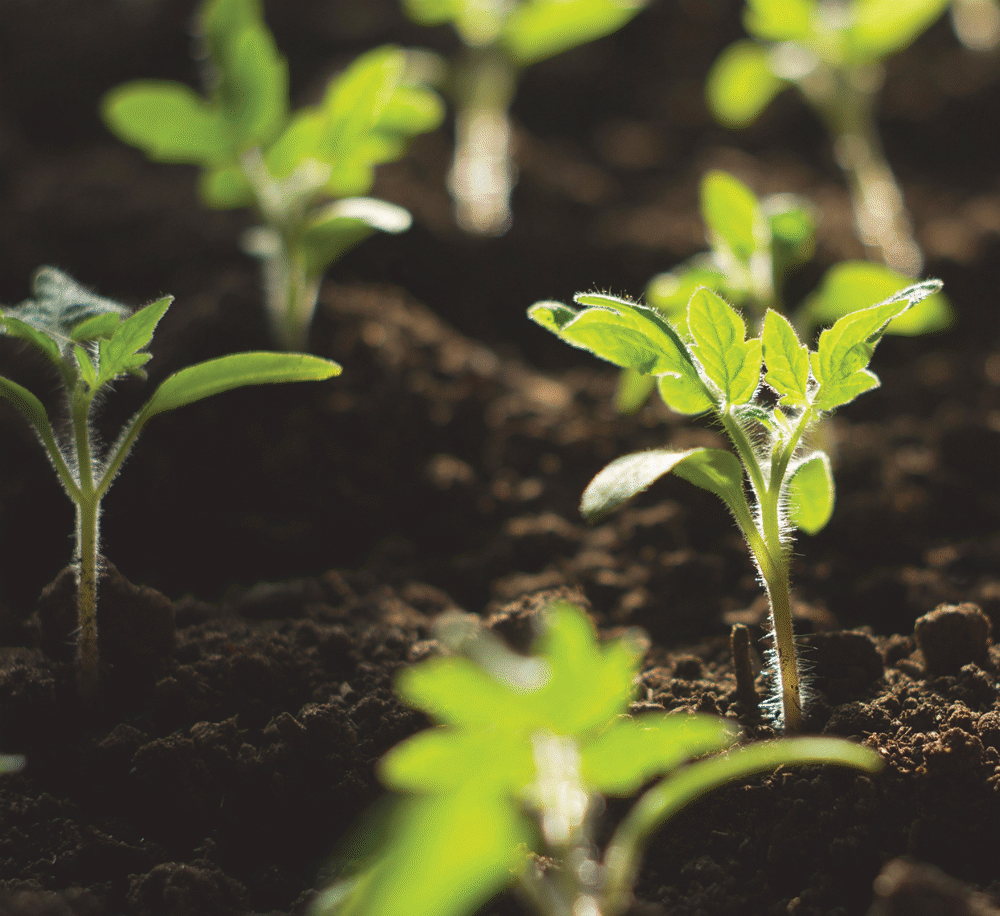
Why Microbes Matter
How Microbes Carry out Beneficial Functions in the Soil
Microbes produce a wide variety of organic compounds in the soil. These compounds are also referred to as metabolites which include organic acids, enzymes, natural hormones, and antibiotics.
Organic acids, which are just one class of compounds produced by microbes, lower the pH of the rhizosphere (root zone) and break down the complex organic matter into simpler forms, thus helping build soil’s organic matter (SOM).
These organic acids also make nutrients available to plants and help make soil permeable to water, fertilizers, and other nutrients.
How microbes solubilize P & K
Enzymes are another class of compounds produced by microbes. They help breakdown chemical bonds between the nutrients, such as phosphate, potassium and many other minerals, in rock or soil particles, thereby releasing or freeing the nutrients for plant uptake.
Enzymes are also needed for plant growth and development to help synthesize proteins, glycoproteins, polysaccharides, and lipids.

How Microbes Fix N
Many microbes are capable of fixing nitrogen in plants. Microbes use free or atmospheric nitrogen and transform it into ammonia then further convert it into inorganic compounds that are usable by plants.
Nitrogen is an essential part of proteins and nucleic acid molecules.

How Microbes Protect Plants from Diseases
Many microbes produce a variety of organic compounds to protect plants from invading diseases. For example, Bacillus thruingiensis produce Cry Protein crystals that are toxic to many harmful insects and their larvae.

